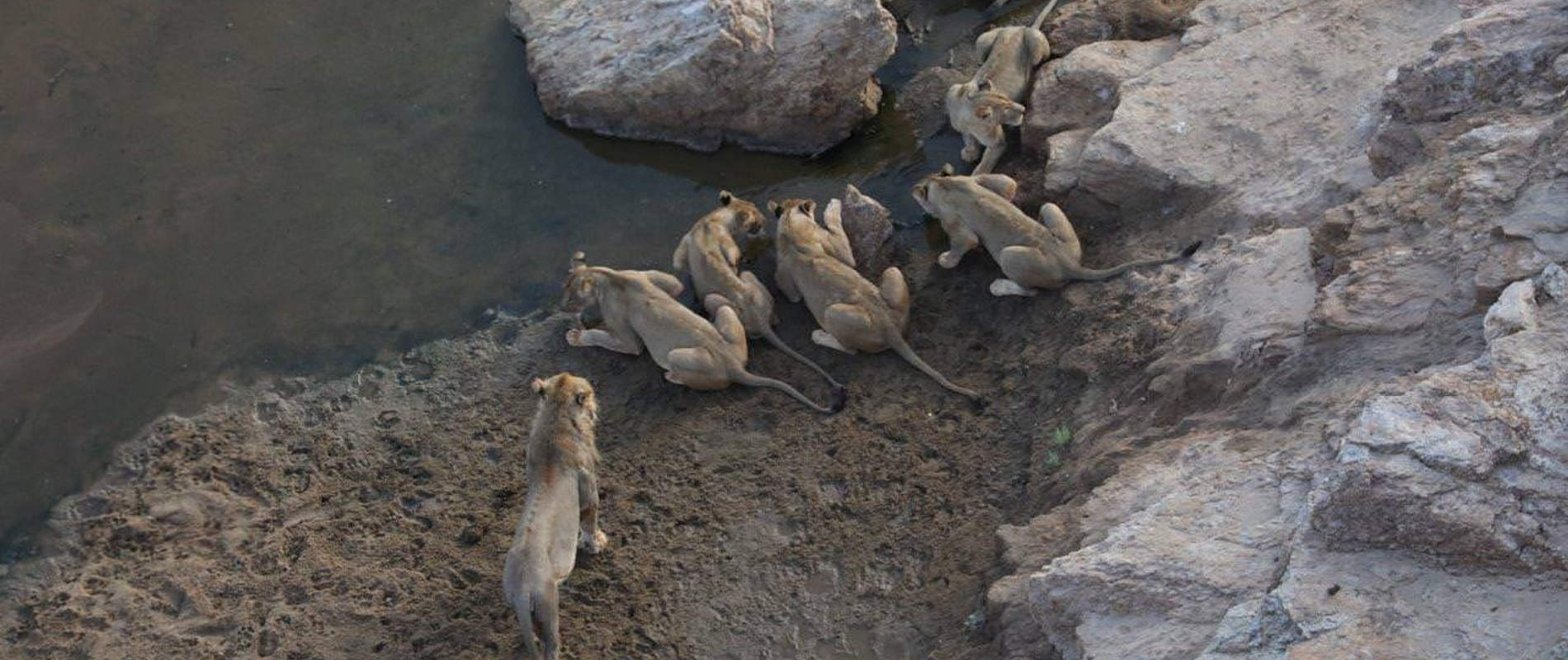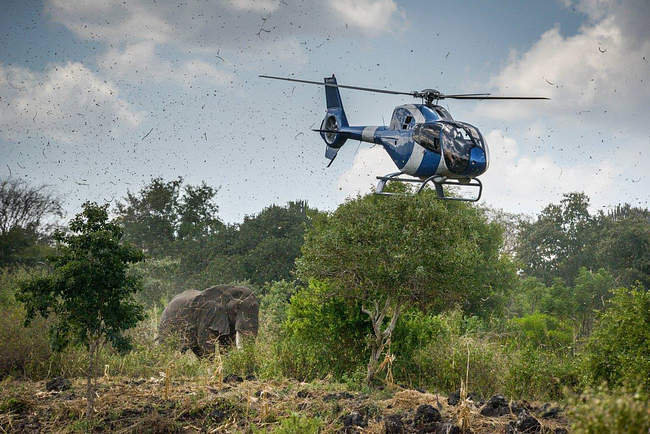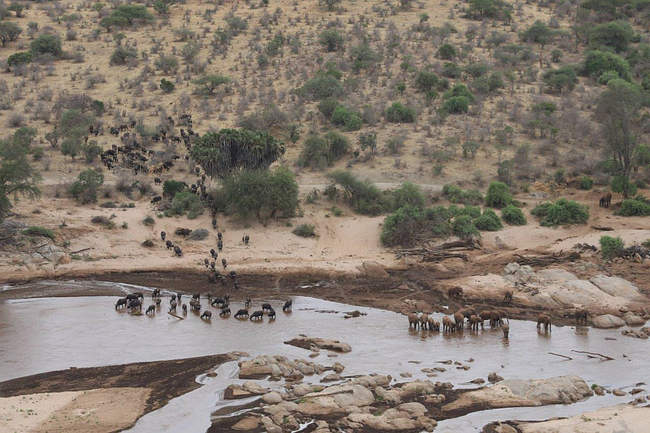March usually marks the onset of Tsavo’s short rains (long rains for the rest of the country). Despite many of the tell-tale signs of impending rain – ostriches laying eggs, acacias flowering, and oppressive heat – only a couple small rain storms fell in Tsavo. As the month wore on, nothing seemed to abate the intense heat and much of the Park has become dry and dusty at a time of the year that is normally relatively wet. Perhaps because of this unexpected delay in the rains, Human-Wildlife Conflict cases were numerous.
In March, the helicopter was called out 7 times to deal with elephants outside of the Park. On 5 of these occasions, small to medium sized herds were successfully pushed back into the Park with the helicopter. The other two difficult cases proved unsuccessful after several attempts to remove the elephants out of conflict zones, causing much alarm amidst the community; clearly without intervention the situation would have ended in disaster, so the Trust joined forces in an effort to physically remove the elephants from the dangerous situation. With Dr Poghon on leave, Dr Mijele and the SWT funded Mt Kenya Veterinary Unit were mobilized together with the KWS elephant translocation unit along with additional personnel and the SWT helicopter. This was an incredibly challenging operation which ended up with great success with the elephants being safely transported into the Kibwezi Forest and Chyulu Hills respectively.
Poaching activity was relatively sparse in March, with one harbour being sighted on a fixed wing patrol and a total of 3 harbours and 1 shooting blind discovered on helicopter patrols. Two of the harbours and the shooting blind were found while in pursuit of suspects whose tracks were followed for several kilometres before they were unfortunately lost. The suspected poachers are believed to have made an exit from the Park before making a successful kill.

The helicopter was also involved in extinguishing 2 fires: a small one on the Yatta Plateau set by honey harvesters as well as a larger bush fire in the Chyulu Hills near Kikunduku. The latter fire was not put out in its entirety; however, the helicopter and Bambi bucket combination were effective in attacking the main head of the fire, and the rest went out naturally by the following morning with the help on teams on the ground.
Two veterinary cases were also attended to with assistance from the helicopter on the same day. The only other illegal activity noted in March was 5 charcoal kilns outside of the Park but in a protected area.
Highlights in March included multiple lion and leopard sightings as well as 16 wild dogs at a spring on the Yatta Plateau and two honey badgers in Tsavo West.



